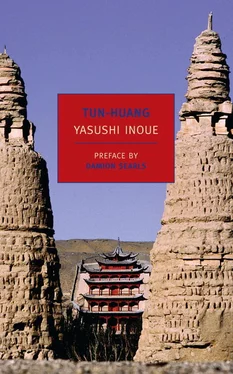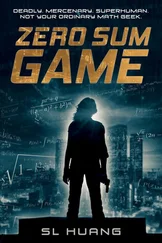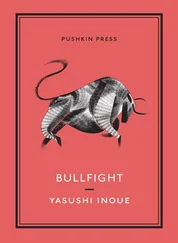“Throw it out!” Kuang bellowed.
Hsing-te left and returned once more to Yen-hui, who sat alone, leaning against one arm of his chair. He felt that he had come from an extremely avaricious, energetic man to a completely different type — an unworldly, apathetic individual.
“Governor!” Hsing-te called out as he entered the chamber. “The fighting will start at any time now. How long do you intend to stay here?”
“If it’s going to start, it doesn’t matter to me when it starts. I’m staying right here.”
“Don’t be so foolish. You must leave right away.”
“Why do you want to take me out of here?”
“Why? A human being should live as long as he can.”
“Should live?” Yen-hui said this as though it were a strange notion. “Do you want to live? Those who want to live will probably live. Now that I think of it, if you’re trying to survive, I’ll give you this.” As he spoke, Yen-hui opened the door of a miniature shrine behind him and took out a scroll. “I’ll give this to you for safekeeping.”
“What is it?” Hsing-te asked, as he accepted the heavy scroll.
“It’s the family history of Regional Commander Ts’ao.”
“And what should I do with it?”
“Just keep it. I’ll leave the rest to you, since you plan to survive. It’s up to you to burn it or throw it out.”
“If that’s the case, I might as well leave it here, mightn’t I?”
“No, that would embarrass me. My brother gave it to me for safekeeping, and I am at a loss what to do with it. I’ll give it to you. I won’t be responsible for it any longer.”
Yen-hui looked as though he had suddenly been relieved of a heavy responsibility and sank again into his seat. He didn’t give another glance at the scroll. Hsing-te felt that a burden had been thrust upon him and was annoyed. He was certain that Yen-hui would not take back the scroll, even if he tried to return it. Since there was nothing he could do, Hsing-te took the scroll and left the palace.
When he returned to his room by his headquarters, he felt nothing mattered any more, and fell at once into bed and went to sleep. Some hours passed. Hsing-te was awakened by a messenger from Wang-li. He went to the door. The sun was high overhead. The sunlight and the silence of the surroundings seemed meaningless to him.
The messenger’s report was simple and brief: “Hsien-shun has died in battle.” That was all. Hsing-te could get no further information from the man other than the fact that Wang-li’s own forces had not yet begun to fight.
He went back to sleep. While he dozed, he had a dream. He was on the edge of a sandy hillock directly facing the setting sun. From there he had a panoramic view of the vast desert stretching out like the sea. All about, low sand hills rose and fell like triangular waves. The one on which Hsiug-te stood was the highest in the area. Looking down, he could see trees below, tiny in the distance, which was hard to estimate.
He was not standing alone. For some time he had been watching Wang-li, who had been looking deeply into his eyes. In the setting sun, Wang-li’s face was a brilliant red; his eyes flashed as if they were on fire.
Suddenly, Wang-li looked at Hsing-te tenderly and told him he had something he wanted to give him. He searched for the Uighur princess’s necklace. It appeared, however, that he had lost it during a fierce battle. “If I am so far gone that I have lost that necklace, then my days are numbered. At this rate, I don’t think I can get Yüan-hao’s head. I regret it very much, but there is nothing I can do about it.”
Just then Hsing-te noticed several arrows were lodged in Wang-li. As he tried to pull them out, Wang-li ordered sternly, “Don’t pull them out!” Then he continued, “I have long thought of an end like this. Watch!” As he spoke, he pulled out his sword, and holding the blade with both hands, he began to push its tip into his mouth.
“What are you doing?” The instant that Hsing-te shouted, Wang-li’s body danced up into the air, then fell headlong down to the bottom of the cliff.
Hsing-te was awakened by his own voice. He didn’t know what he had shouted, but he was sure that he had cried out. His pulse was racing and he was perspiring. Just then Hsing-te heard an unusual commotion outside.
He quickly opened the door. Many soldiers were carrying flaming bundles of dried rushes as they ran past the barracks. They were all shouting as if they had gone mad. One group after another passed by.
Hsing-te ran to the unit headquarters. He saw the harelipped commander also shouting in front of it. He couldn’t tell where the men with their flaming bundles had come from, but they arrived in successive waves at the headquarters and dispersed from there.
“What’s going on?” Hsing-te went to ask the commander, who opened his mouth wide and grinned — that mouth was gruesome even under normal circumstances. He replied indistinctly, “We’re going to burn the city … the city”
“Where is Wang-li?” Hsing-te felt strangely anxious as he asked this.
“Our commander has died in battle. That report has just come in. Burn the city. After that everyone can flee.”
The hare-lipped warrior was so agitated that he would not listen to anything Hsing-te said. He waved his arms about excitedly and continued shouting at the soldiers. “Light the fires! Burn the city!”
Hsing-te thought that he might somehow be able to see the battle, so he ascended the ramparts. But he could see nothing from there. The plain, which was about to absorb the setting sun, was still. But when he strained his ears, he could hear sounds resembling war cries somewhere at a great distance. These sounds were distinct from the confusion reigning within the city. When he looked back into the garrison, he saw smoke rising from many spots all over the city.
The fires were probably blazing strongly, but it was hard to tell in the daytime. Minute by minute black smoke began to gather over Sha-chou.
As Hsing-te descended, he felt there was nothing left for him to do in this world. From the moment he had heard of Wang-li’s death, it seemed he had lost the mainstay of his life. If the elderly commander had lived, he would want to live, too, but since he had died, Hsing-te no longer felt that life was worthwhile, or of any interest. By the time he reached ground level, the fire inside the city had gained intensity and the sound of burning echoed throughout.
Hsing-te went to the North Gate and sat down on a stone. There was no longer anyone in sight. The shouting, harelipped commander was gone, as were the rest of the soldiers. However, Hsing-te perceived the figure of a military commander as clearly as if the man were actually there. It was the image of Wang-li, who had thrust his sword into his mouth and jumped off the cliff. He had fought himself to exhaustion, his sword had broken, his arrows were gone, he had been sapped of all energy and at the end had probably died like that. There was no other way open to him but to take his own life.
For a while Hsing-te sat there. Hot gusts of wind suddenly blew into his face and brought him back to his senses. The fire had brought on the wind, for there had been none a short time before. Smoke rolled along the ground toward Hsing-te. He suddenly noticed a man staggering awkwardly out of the smoke toward him.
“Kuang.” Involuntarily, he called out and stood up. Then Hsing-te saw some camels, partially enveloped by the smoke, slowly emerging from behind Kuang.
As he came up to Hsing-te, Kuang said, “They did a foolish thing that wasted our day’s work. What stupidity to set fire to the place before the enemy arrives. Those bastards!”
Saying this, he looked spitefully at Hsing-te, as though he were placing the whole responsibility of setting the city afire on him. Then he shouted at Hsing-te, “I have some more business with you. Come with me.”
Читать дальше












